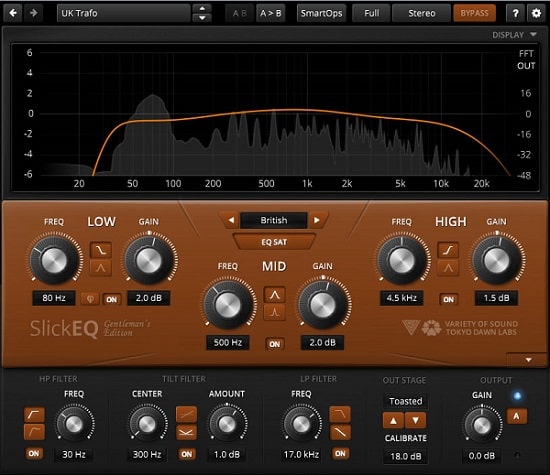
TDR VOS SlickEQ GE v. 1.3.7 VST2 VST3 AU AAX [WIN & macOS]
TDR VOS SlickEQ – Gentleman’s Edition takes SlickEQ‘s concept to new heights and adds an exotic Tilt-filter flanked by flexible low-pass and high-pass filters. Five distinct EQ models provide a rich set of predefined EQ curves and behaviors for the three main semi parametric filter bands.
SlickEQ GE offers a switchable EQ non-linearity and eight different output stages. These options offer subtle and interesting textures, from the typical “mojo” often associated with high quality analogue audio gear, up to more obvious saturation.
An elaborate auto gain option automatically compensates for changes of perceived-loudness during EQ. The 64bit multi-rate processing scheme (a.k.a. “internal re-sampling”) practically eliminates typical problems of digital EQ implementations such as frequency-warping, quantization distortion and aliasing.
Beside the primary controls, the plug-in comes with an array of additional helpers: Advanced preset management, a frequency magnitude plot, undo/redo, quick A/B comparison, copy & paste, an online help, editable labels, mouse-wheel support and much more. Finally, SlickEQ GE allows to exclusively process the stereo sum or stereo difference without external sum/difference encoding (see “M/S” microphony).
Key specs and features
- Three semi-parametric filter bands, each with two shape options
- Five distinct EQ models: American, British, German, Soviet and Japanese
- Low band offers an optional phase-lag able to delay low frequencies relative to higher frequencies
- High pass filter with optional “Bump” mode
- Low pass filter with two different slopes (6dB/Oct and 12dB/Oct)
- Parametric Tilt filter with optional “V” mode.
- Eight output stages: Linear, Silky, Mellow, Deep, Excited, Toasted, Funky and Seven
- Smart Operations: Match Pink, Match reference, De-resonate Auto HP/LP and more.
- Highly effective loudness compensated auto gain control
- Frequency magnitude response display including a realtime analyzer
- Stereo, mono, left, right and sum/difference (mid/side) processing options. Dual Mono mode imposing randomized tolerances
- 64bit “delta” multi-rate structure
